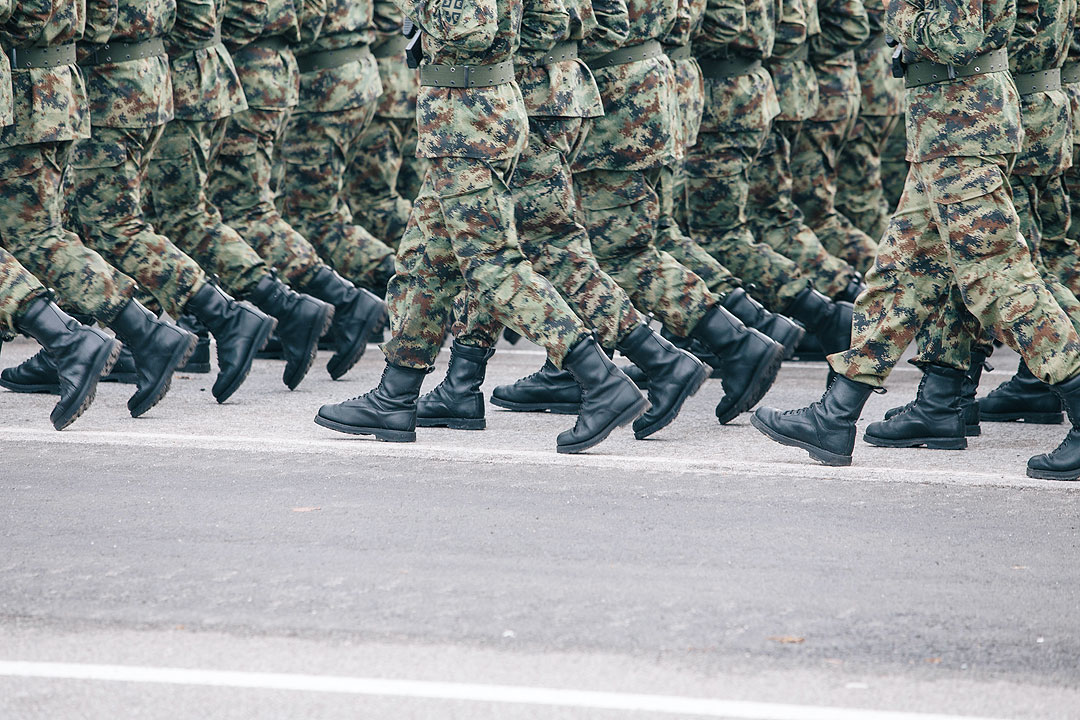Destabilization talk likely fueled by coalition rifts — analysts

By Kyle Aristophere T. Atienza, Reporter
THE RIFT within the ruling coalition likely fueled talk of “destabilization efforts” within the military, political analysts and a retired military general said on Sunday.
On Friday, Armed Forces of the Philippines (AFP) chief Romeo S. Brawner, Jr. warned troops against participating in any efforts to “destabilize” the administration of President Ferdinand R. Marcos Jr., saying the military would “swiftly but judiciously” act against them.
But a day after mentioning the term “destabilization efforts” at a change of command ceremony at the Western Mindanao Command in Zamboanga City, Mr. Brawner said he was “misquoted” and downplayed the extent of the supposed anti-administration efforts.
“We are not hearing about any widespread movement but there were some last Sept. 21. There were groups calling for a rally,” he told reporters in Filipino on the sidelines of a joint session of Congress addressed by Japanese Prime Minister Fumio Kishida on Saturday.
Mr. Brawner was referring to the picket in front of the Commission on Elections (Comelec) in Manila, where the groups September Twenty One Movement (STORM) and TNTrio accused the poll body of collusion with Smartmatic to rig the results of the 2022 elections. Present during that rally were some retired military officers.
“For the record, the TNTrio and the September Twenty-One Reform Movement (STORM), some members of whom are retired AFP officers, never advocated for any destabilization moves,” former Department of Information and Communications Technology secretary and retired army general Eliseo M. Rio, Jr., an active member of the groups, said in a statement.
“We know that there are now issues that are causing a serious split between the Marcos and the Duterte camps like the International Criminal Court, Confidential and Intelligence Funds, proposals of civil disobedience like not paying taxes, and using the military to conduct lifestyle checks on members of the Congress, etc.,” Mr. Rio said.
“Talks of destabilizations may be the result of these issues,” he added.
While saying that the AFP chief had been misquoted, National Security Adviser Eduardo M. Año said there were indeed “healthy and passionate exchanges/debates among some retired or former military officers and even some criticism against certain policies of the current administration” but that these were “within the bounds of our democratic space.”
“Although often abused, they are part of the freedom of expression where most are academic discussions or politically motivated,” he said in a statement.
AFP spokesperson Col. Medel Aguilar, for his part, said Mr. Brawner “merely mentioned the reported efforts by certain individuals to upset the peace and stability that the country is enjoying right now.”
The destabilization rumors show that the military establishment is “still a political actor in Philippine politics that can operate as a political bloc capable of influencing policies and decisions of the ruling government,” said Arjan P. Aguirre, who teaches political science at the Ateneo de Manila University.
“These rumors may also be influenced by the ongoing tensions within the coalition. Some sectors may be already realigning themselves, with the expectation that anytime the infighting might worsen in the coming months,” he said in a Facebook Messenger chat.
The 1987 Constitution, which was created after the late dictator Ferdinand E. Marcos was toppled in a popular uprising in February 1986, restored civilian authority over the military.
“Rumors of destabilization plots had been a feature of Philippine politics in the past, but they have become more rare in the recent years as the domestic security situation has improved over the last decade,” Randy P. Tuaño, dean of the Ateneo School of Government, dean of the Ateneo School of Government, said via Messenger chat.
“It was a surprise that it has come up and thus it was good that our security officials have addressed these rumors immediately.”
WR Numero Research President Cleve V. Arguelles said Mr. Marcos should address issue squarely. “In talks of coups, the smoke sometimes is actually also the fire. And it isn’t helping that Brawner, Año, and Aguilar are all saying different things,” he said.
“Was there a threat to his government? What was under threat, if true, was the people’s democratically elected government?” said Mr. Arguelles of what the President has to answer. “The public has the right to accurate, complete, and truthful information on this.”
Faultlines emerged within the ruling coalition following a reported House leadership dispute in May involving Pampanga lawmaker and former president Gloria Macapagal-Arroyo, a known power broker in Philippine politics, and House Speaker Martin G. Romualdez, a cousin to Mr. Marcos.
Ms. Arroyo was a key backer of the political alliance between Mr. Marcos and then vice presidential candidate Sara Duterte-Carpio during the 2022 campaign.
Mr. Marcos is seen veering away from the foreign policy of his predecessor, who led a pivot to China in 2016 in exchange of investment pledges, few of which had materialized. Mr. Duterte has criticized the Philippine leader’s decision to expand the country’s 2014 Enhanced Defense Cooperation with the US, which China has also opposed.
Political scientist Antonio P. Contreras noted that supposed debate among retired military officers came on the heels of the administration’s push to reform the pension system for retired military and uniformed personnel, which is currently fully funded by the government.
“This is at a time that the Congress is talking about the proposed pension reform. The media has already reported rumblings within the military regarding the pension reform,” he said in a Messenger call.
The House-approved MUP pension reform bill removed a key proposal requiring active personnel to make mandatory contributions. Finance Secretary Benjamin E. Diokno had warned of a possible “fiscal collapse” should lawmakers fail to make changes.
He also noted that Mr. Marcos has veered away from the security policy of his predecessor, who waged a deadly war on drugs and put focus on the local Maoist movement.
In September, AFP Western Command chief Alberto Carlos said the government has been shifting its focus to external defense from internal security, noting an expected shift in the “allocation of resources and forces to address external security threats.”
For Stratbase ADR President Victor Andres C. Manhit, there seems to be “external forces trying to destabilize the country, creating discord among the military ranks and spreading disinformation.”
He noted that the Philippines is now boosting its security ties with the United States and its allies Japan and Australia to defend its lawful claims in the South China Sea.
Mr. Duterte has doubled the entry-level police and military personnel’s salary and increased ranking officers’ wages by over 70%, in a move seen aimed at softening possible opposition within the military to his foreign policy pivot to China.
The Philippines is a key treaty ally of the US, which has vowed to defend Philippine vessels in case of an attack within Manila’s 200-nautical mile exclusive economic zone. Mr. Marcos in February gave the US access to four more military bases on top of the existing five sites under the two countries’ 2014 Enhanced Defense Cooperation Agreement.
“The Philippines, because of our strategic location in the Asia Pacific, has always been vulnerable to [destabilization] efforts from other parts of the world, powerful sources. It depends now on who is manipulating and destabilizing,” Mr. Contreras said. “Before it may be the US, but I don’t think it would destabilize the Philippines at this point of time, when the Philippines is a strong ally,” he said. “You could now guess which country would probably benefit from destabilization.”
Mr. Contreras, meanwhile, said anti-Marcos sentiments among ex-soldiers might have been more amplified now because the President is “not what he was expected to be: dictatorial, ruthless.”
“The reason why there’s more amplification, why the noise comes out, is because the President is not what he was expected to be: dictatorial, ruthless. Notably, he was associated with someone who’s very strong,” the analyst said, referring to Mr. Marcos’ late father.
Mr. Contreras also said the AFP may have intentionally discussed the alleged “destabilization efforts” because a “coup attempt is successful when it’s done in secrecy.”
“The success of a coup is the element of surprise,” he said.



